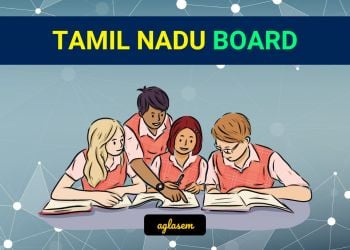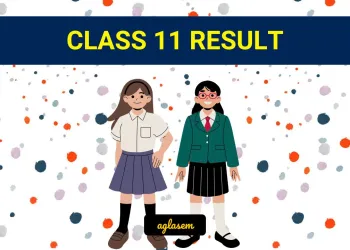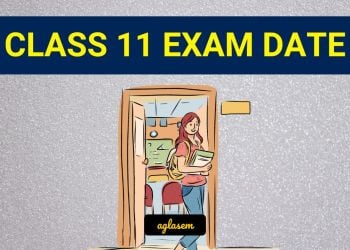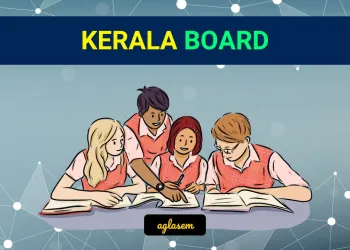NCERT Solutions for Class 11 Geography have been updated on aglasem. So now you can download Class 11 Geography Solutions PDF for all chapters here. These NCERT Solutions contain answers of questions asked in Class 11 Geography book namely Fundamentals of Physical Geography, Practical Work in Geography Part I, India Physical Environment for all exercises. Therefore you can use Geography solutions guide to complete class 11 syllabus, and use it with Geography notes to get full marks in exams.
NCERT Solutions for Class 11 Geography
What are NCERT Solutions for Class 11 Geography?
The NCERT Solutions Class 11 Geography is the collection of questions and their correct answers asked in exercises of all chapters of NCERT Book for Class 11 Geography. Therefore these NCERT Solutions for Class 11 contain chapter-wise answers of the book or books Fundamentals of Physical Geography, Practical Work in Geography Part I, India Physical Environment. They are as follows.
NCERT Solutions for Class 11 Geography PDF
Fundamentals of Physical Geography
- Chapter 1 Geography as a Discipline
- Chapter 2 The Origin and Evolution of the Earth
- Chapter 3 Interior of the Earth
- Chapter 4 Distribution of Oceans and Continents
- Chapter 5 Geomorphic Processes
- Chapter 6 Landforms and their Evolution
- Chapter 7 Composition and Structure of Atmosphere
- Chapter 8 Solar Radiation, Heat balance and Temperature
- Chapter 9 Atmospheric Circulation and Weather Systems
- Chapter 10 Water in the Atmosphere
- Chapter 11 World Climate and Climate Change
- Chapter 12 Water (Oceans)
- Chapter 13 Movements of Ocean Water
- Chapter 14 Biodiversity and Conservation
India Physical Environment
- Chapter 1 India – Location
- Chapter 2 Structure and Physiography
- Chapter 3 Drainage System
- Chapter 4 Climate
- Chapter 5 Natural Vegetation
- Chapter 6 Natural Hazards and Disasters
Practical Work in Geography Part I
- Chapter 1 Introduction to Maps
- Chapter 2 Map Scale
- Chapter 3 Latitude, Longitude and Time
- Chapter 4 Map Projections
- Chapter 5 Topographical Maps
- Chapter 6 Introduction to Remote Sensing
How to download NCERT Solutions for Class 11 Geography PDF?
There is a simple way to download class 11 Geography solutions PDF here at aglasem. So if you have to solve exercises of class 11 Geography NCERT book multiple times, then you can use solutions of NCERT book Fundamentals of Physical Geography, Practical Work in Geography Part I, India Physical Environment as per your convenience. The steps to download class 11 Geography questions answers guidebook is as follows.
- Start by searching NCERT Solutions for Class 11 Geography PDF aglasem to come to this page.
- Then click the link of the Class 11 Geography Solutions Chapter for which you want to know answers.
- Now pdf file of NCERT questions answers for class 11 Geography for that chapter opens.
- Thereafter click download pdf link to get Class 11 Geography NCERT Solutions PDF for all exercises of the topic.
NCERT Solutions for Class 11
One has to study multiple subjects in addition to Geography in standard 11. You can use NCERT solutions of respective topic when you solve their exercises. The Class 11 NCERT Solutions for all subjects are as follows.
- Accountancy
- Biology
- Business Studies
- Chemistry
- Economics
- English
- Geography
- Hindi
- History
- Maths
- Physics
- Political Science
- Psychology
- Sociology
NCERT Solutions
The National Council of Educational Research and Training (NCERT) has books for all classes. You can explore the book solutions depending on your grade level. Here are NCERT book solutions for all classes.
- NCERT Solutions for Class 1
- NCERT Solutions for Class 2
- NCERT Solutions for Class 3
- NCERT Solutions for Class 4
- NCERT Solutions for Class 5
- NCERT Solutions for Class 6
- NCERT Solutions for Class 7
- NCERT Solutions for Class 8
- NCERT Solutions for Class 9
- NCERT Solutions for Class 10
- NCERT Solutions for Class 11
- NCERT Solutions for Class 12
NCERT Solutions for Class 11 Geography – An Overview
The important highlights of this study material are as listed below.
| Aspects | Details |
|---|---|
| Class | Class 11th |
| Subject | Geography |
| Name of NCERT Book or Books For This Subject | Fundamentals of Physical Geography, Practical Work in Geography Part I, India Physical Environment |
| Educational Material Here | NCERT Book Solutions of Class 11 Geography |
| More Book Solutions For This Class | NCERT Solutions Class 11 |
| More Book Solutions | NCERT Solutions |
| Download NCERT Book PDF For This Subject | NCERT Book for Class 11 Geography |
If you have any queries on NCERT Solutions for Class 11 Geography, then please ask in comments below.
To get study material, exam alerts and news, join our Whatsapp Channel.




